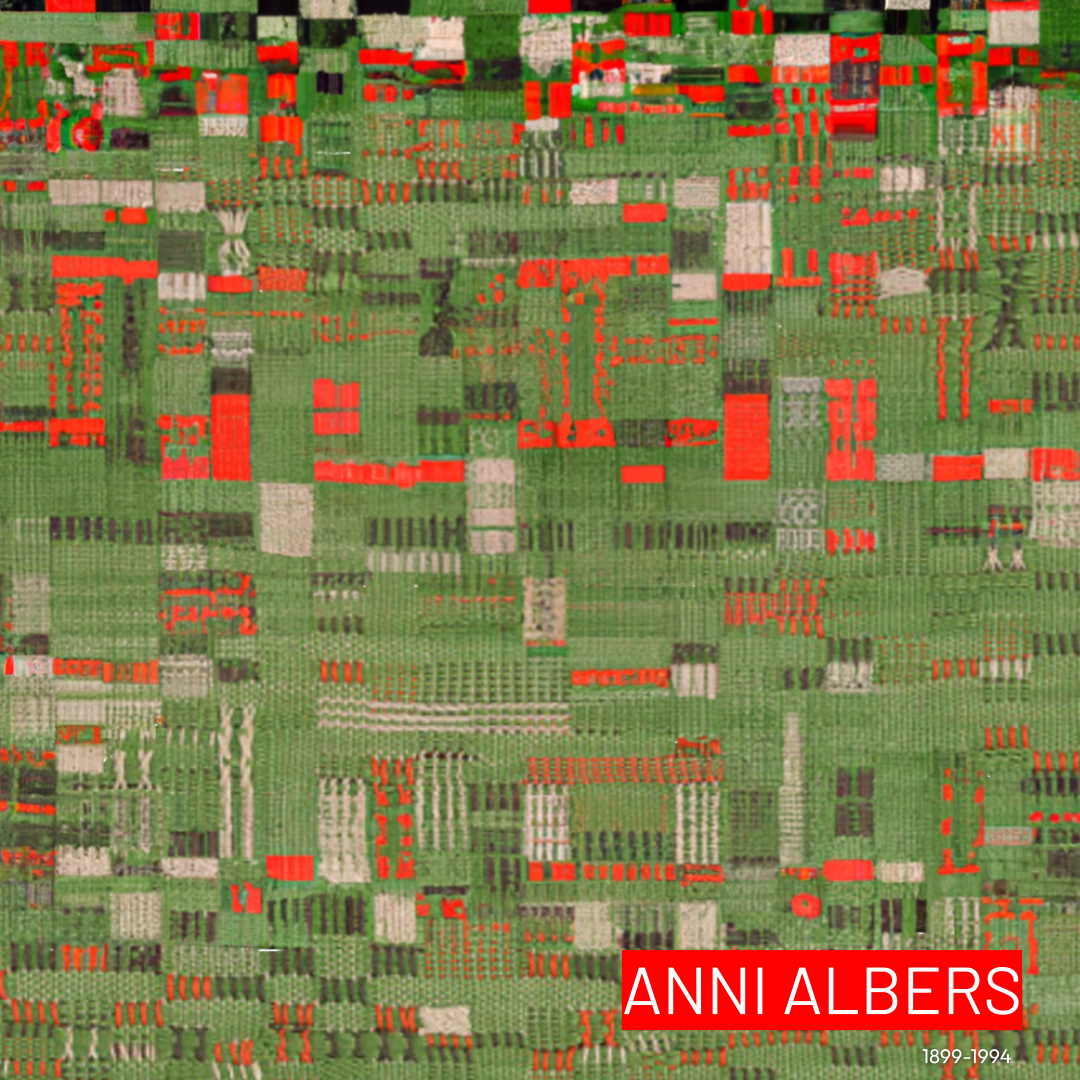ANNI ALBERS
Within the Bauhaus textiles were an important component in furniture design and costumes for theater performances. Yet the weaving workshop was disregarded and seen only as a craft for women not as art like the painting workshop was for men. The depth of textile art was fully explored by people like Anni Albers through her focus on color and pattern through layering of fibers rather than a 2d representational device. Anni Albers was drawn to the Bauhaus for its promise of artistic liberation and innovative education. Seeking an environment that transcended traditional boundaries, Albers recognized the Bauhaus as a groundbreaking institution where art, design, and craft converged harmoniously. The school's progressive ideology, emphasizing the synthesis of form and function, resonated deeply with Albers' artistic sensibilities. Additionally, the Bauhaus offered a unique opportunity for Albers to explore her passion for textiles within a supportive and collaborative community. The prospect of learning from renowned artists and designers, alongside the chance to experiment with new materials and techniques, motivated Albers to embark on her journey to the Bauhaus. Ultimately, her decision to join the Bauhaus was a testament to her unwavering dedication to artistic growth and her relentless pursuit of creative expression.










